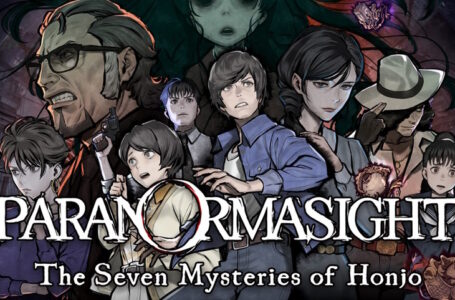The History of Lewd: Private Nurse
Private Nurse is one of those games that almost immediately subverts the expectations set by its title. I mean, come on, “Private Nurse”? If you know nothing of this game, you’d be entirely forgiven for assuming it was nothing more than a nurse fetish nukige. I mean, Immoral Study was about a horny professor violating every code of ethical conduct under the sun, right?
Private Nurse is not, I’m sure you have realised by now, a nurse fetish nukige.

Private Nurse was first released in 2001 by developer Angel Smile. Unusually, it didn’t take very long for it to come west, with G-Collections putting out a packaged English-language release in 2002, and JAST USA — who acquired the ailing localisers in 2005 — releasing the game as a digital download in 2005.
Interestingly, the game’s original western marketing spiel made the game sound a lot more “porny” than it actually is by making references to the protagonist turning the titular nurse into his “private sexual teacher”. Make no mistake, there is sex as part of Private Nurse’s narrative — and quite a bit of it — but the context from that original blurb is just flat-out inaccurate, as will doubtless become clear as we talk a little more about this unusual and fascinating title. (And, thankfully, today’s marketing text paints a much more accurate picture of what the game is about!)
In Private Nurse, we follow the story of Hiroki, a young man who has been ill for as long as he can remember. Since we follow the story from Hiroki’s first-person perspective, he never makes direct reference to what he is actually sick with, but it is abundantly clear that he is suffering.
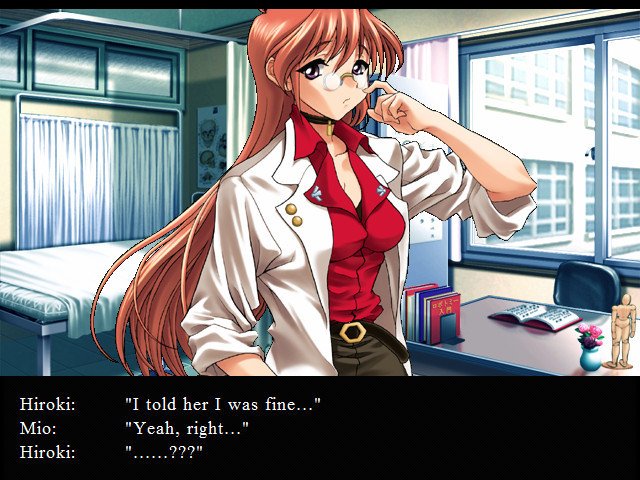
Sometimes this pain manifests itself as physical symptoms or pain; at others, it’s a sense of general lethargy and worthlessness. As the story progresses, we can make certain inferences as to what he’s actually suffering from — likely some mental health issues coupled with physical symptoms that are an indirect result of how he treats himself — but a fair bit of the story concerns Hiroki coming to terms with his condition, whatever it is, and how he might be able to do something about it.
The people around Hiroki are aware that he is suffering, but aren’t sure what they can do about it. His childhood friend Ayano, who picks him up to go to school every morning, does her best to keep him motivated to varying degrees of success; the school nurse Mio seems to have an endless supply of patience for Hiroki showing up in the middle of the school day to rest; and his mother, despite often being absent for work, is clearly concerned about him, too.
Part of Hiroki’s condition doubtless stems from his living situation. His father passed away before the events of the game, and his mother’s perpetual absence has caused him to feel a considerable amount of resentment towards her, typically referring to her as “the hag”. Even his relationship with Ayano is tense at times; it’s clear that his life is going nowhere — and moreover, he’s not willing to do anything about it.
This is what leads Hiroki’s mother to hire a private nurse for him. And when Maria, the nurse in question, shows up, his life changes.
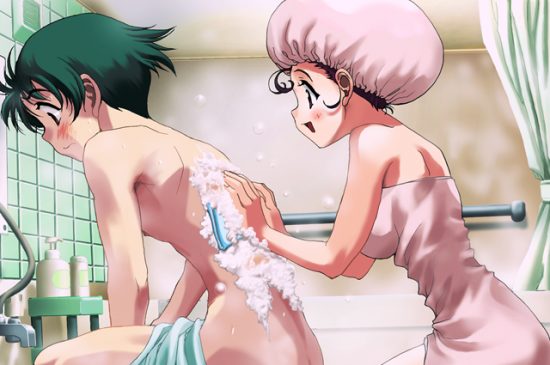
Maria begins by shaking up Hiroki’s routines, or lack thereof. She makes him get up early, eat properly and go for walks in nature rather than locking himself indoors being depressed. She takes care of his personal needs — and eventually their relationship becomes sexual, in another of many examples of sexual congress in visual novels being used as a symbol of healing and growth.
Interestingly, from a lewd perspective, Private Nurse’s big gimmick (which ultimately doesn’t matter in the grand scheme of things) is that it has semi-randomised sex scenes drawn from a large pool of possibilities. This actually makes it quite tricky to get 100% completion on the game’s CG gallery if that’s something you want to do — some of the possible scenes only unfold in the “After” stories that unlock after you beat the main narrative. It’s a curiously substantial inclusion in a game where the sexual content is absolutely not the main point of the experience; it’s there because, as previously mentioned, it has some degree of meaning.
In Hiroki’s case, his willingness to be intimate with Maria demonstrates a willingness to finally “let someone in” — something that, historically, he has never done before, even with Ayano and Mio. And, over time, he starts to come to terms with his own condition and how he might be able to deal with it; healing is an active rather than a passive process in circumstances such as Hiroki’s, and so in order for him to get better, he needs to take some steps by himself.
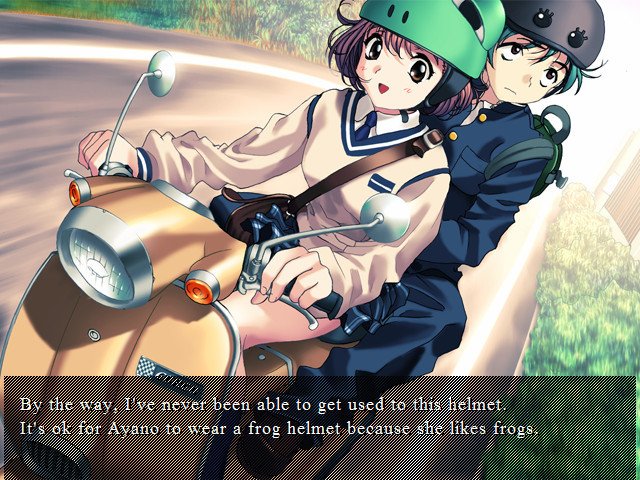
Interestingly, despite the relationship between Hiroki and Maria seemingly being the focus of the visual novel for the majority of its duration, the ending you get is primarily determined by the choices you make through the narrative, and how this leads Hiroki to attribute his process of recovery to Maria, Ayano or Mio — in the latter cases, showing him to finally recognise and appreciate what they have done for him while he has been struggling.
A lot of Private Nurse is left up to interpretation, and that’s what makes it so effective. The vague nature of Hiroki’s condition means that it can be relatable to a wide variety of people, whether they’ve been dealing with debilitating physical or mental health issues themselves — or perhaps taking care of someone who has been suffering in such a way.
Likewise, as we get to know Maria, it becomes clear that there is something unusual about her, but even in her own specific ending we are left with a few unanswered questions that we have to figure out for ourselves. The exact conclusion you come to can depend on a lot of things — including your own attitude towards subjects such as spirituality.
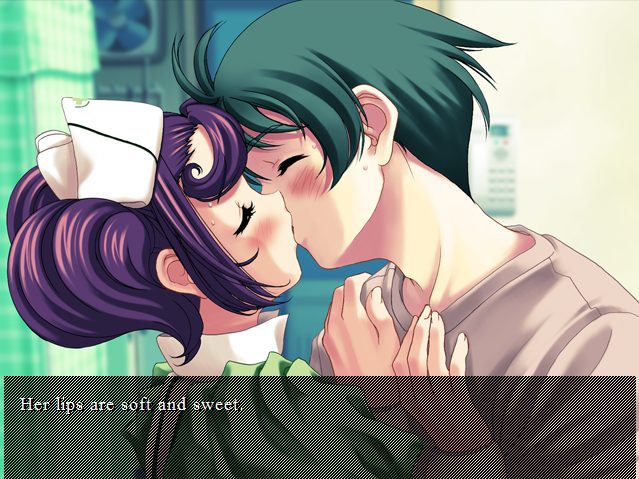
Private Nurse is a visual novel that doesn’t get talked about a lot these days; it certainly isn’t nearly as well known as some other titles from the period such as the all-time classic Kana Little Sister, but it absolutely deserves to stand alongside them. While its slow-paced, introspective story might not be to everyone’s taste — particularly when coupled with the arguably overabundant H-scenes — it’s definitely a memorable journey, and a relatable story to engage with for anyone who has ever found themselves struggling.
Join The Discussion
Rice Digital Discord
Rice Digital Twitter
Rice Digital Facebook
Or write us a letter for the Rice Digital Friday Letters Page by clicking here!
Disclosure: Some links in this article may be affiliate links, which means we may earn a small commission if you make a purchase after clicking on them. This is at no additional cost to you and helps support Rice Digital!
- Letter from the Editor: passing the torch - June 30, 2023
- Super Woden GP 2 is looking promising - June 30, 2023
- Inti Creates is making a 32 bit-style Love Live action platformer - June 26, 2023







